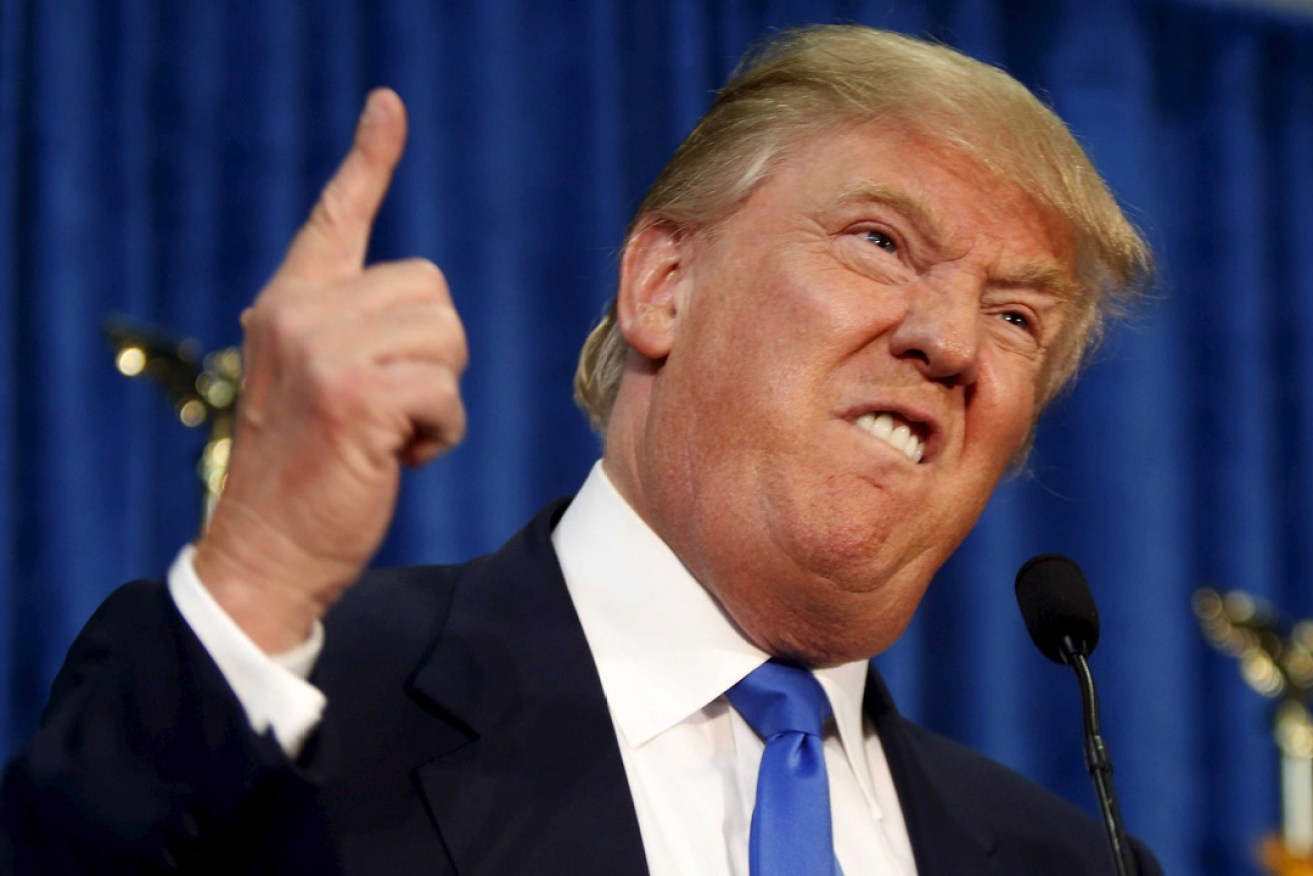Trump unleashed, but it’s still the Republicans running for cover
The official presidential election campaign has barely started and already Republican nominee Donald Trump and his campaign have put more feet wrong than a centipede doing the two-step, writes Jesse Barker Gale.

President Donald Trump
His terrible run began just over a week ago with Trump’s attack on the parents of deceased Muslim American Army Captain Humayun Khan.
Captain Khan’s father, Khizr Khan, delivered a widely acclaimed and deeply emotional speech at the Democratic National Convention, wherein he denounced Mr Trump’s proposed immigration policies. Mr Khan also challenged him to read the United States Constitution, specifically the section of the Fourteenth Amendment that guarantees liberty and equal protection (under) the law.
Trump reacted strongly, challenging the right of Mr Khan to “stand in front of millions of people and claim I have never read the Constitution…”, even though the right of freedom of speech is enshrined in the First Amendment to the Constitution.
In what has become a troubling hallmark of Mr Trump’s defence strategy, he additionally claimed that Ghazala Khan, the mother of the deceased Captain, had not spoken alongside her husband, because “maybe she wasn’t allowed to have anything to say.”
Trump’s feud against a “Gold Star Family” provoked furious condemnation from both sides and all levels of politics. Though whether the condemnation will have any success in forcing the presidential candidate to tone down his rhetoric is debatable, as similar comments attacking the military and minorities have not hurt him in the past.
In addition to these comments, Trump caused many to question the remaining shreds of his foreign policy acumen, when he stated that, under a Trump Administration, Russian President Vladimir Putin would not invade Ukraine. The problem? Putin invaded Crimea two years ago.
Trump’s blunder is comparable to former President Gerald Ford’s declaration in 1976 that: “There is no Soviet domination of Eastern Europe, and there never will be under a Ford administration.”
As well, questions about the role that Trump campaign manager Paul Manafort played in Ukraine politics post-Russian intervention continue to circle. These questions, published in an article by the New York Times, also note that it is not clear whether Mr Manafort is still on the payroll of Ukrainian politicians.
Throughout this whole process, he has never been more powerful than he is at the moment
One of Tump’s other recent actions, and the one that has caused apoplectic levels of rage among the Republican establishment, is his refusal to endorse Speaker of the House of Representatives Paul Ryan and 2008 presidential nominee Senator John McCain for their primaries.
Neither man is expected to lose, and were he not the nominee, it’s doubtful that either would seek Trump’s endorsement. However, the endorsement of incumbent senior politicians by the presidential nominee is a large part of the practical legitimisation and shoring up of party unity that takes place post-Convention.
Due to the complete separation of powers, presidents are unable to move legislation of their own accord, and rely on party leaders and chairs of the legislative committees to advance legislation.
As President Barack Obama has found, that necessitates having a strong working relationship with one’s party, something with which the current President has consistently struggled.
Presidential candidates that run on an anti-Washington platform, endorsing the increasingly popular view that Washington DC is all that is wrong with the United States, often find themselves struggling to prove that they will be able to keep their promised policies.
Democratic candidate Bernie Sanders’ quixotic campaign often faced questions that related to how he was going to achieve anything as president, given his near dearth of support among his fellow legislators.
While Trump’s recent actions are shocking, they are not surprising. Throughout this whole process, he has never been more powerful than he is at the moment.
The Republican Party has no process through which it could strip Trump of his nomination, and I suspect that however this ends, significant changes to the Republican nomination process will be the first order of business.
Ronald Reagan, the father of the modern conservative movement in the United States, popularised the so-called ‘11th Commandment’: “Thou shalt not speak ill of any fellow Republican”.
It’s clear to see that the Republican establishment is struggling with this commandment in the face of unprecedented circumstances. Perhaps it might take comfort and inspiration from the first Republican president, Abraham Lincoln, who wrote: “The dogmas of the quiet past, are inadequate to the stormy present.”
Jesse Barker Gale is a PhD candidate in American Studies at Flinders University’s School of History and International Relations. Barker Gale has a strong academic and practical background in both the American domestic and foreign policy fields. He is currently continuing with his research on US politics and international relations in the office of US Congressman Jim McDermott in Washington State as an Australian Government Endeavour Postgraduate Scholar 2016. He is also a Visiting Scholar at Georgetown University during the scholarship year.





